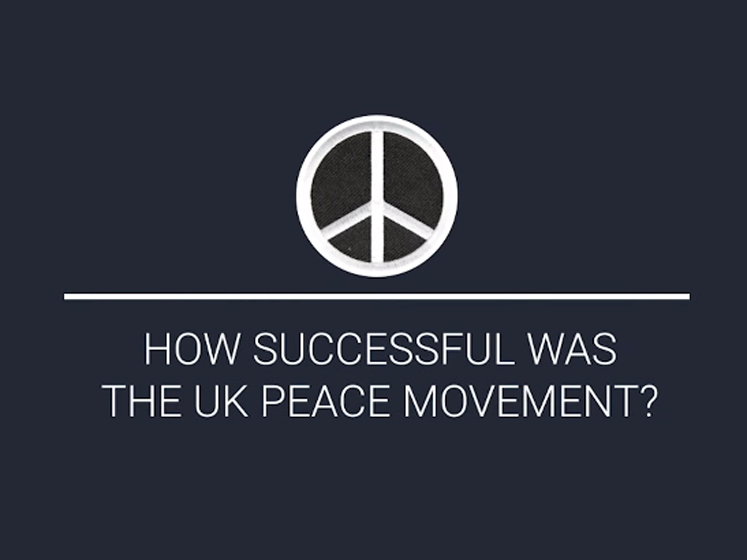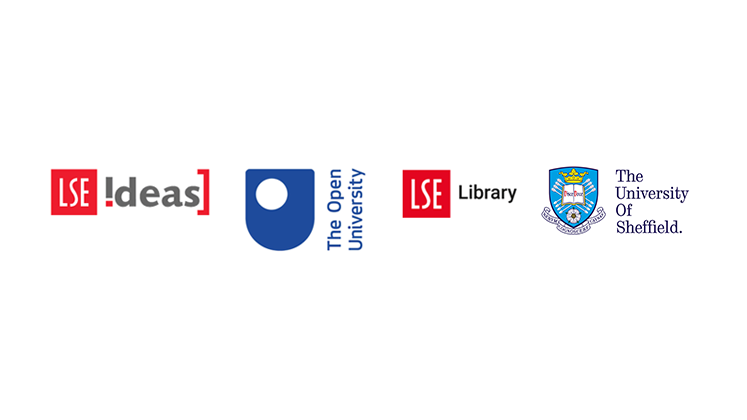It is a matter of considerable debate just how successful the peace movement was in the UK. In the strictest sense of its ability to change UK policies, the peace movement was rather unsuccessful in the early and mid-1980s. Despite energetic campaigns opposing such policies, the British Government deployed Cruise missiles from the autumn of 1983, acquired Trident (although this system would not become operational until 1994), and agreed to participate in the American Strategic Defence Initiative (better known as Star Wars).
 How successful was the UK peace movement?
How successful was the UK peace movement?
How successful was the UK peace movement?
How successful was the UK peace movement?
In other respects, however, the peace movement was more successful. It managed to articulate the anxieties and opinions of a very significant part of the British population. This prompted far more discussion and scrutiny of British defence policies than would otherwise have been the case. In the medium-term, some of the peace movement’s aims were eventually meant. The INF Treaty, signed by the United States and the Soviet Union in 1987, agreed upon the removal of all intermediate-range nuclear forces from both Western and Eastern Europe. As a direct result, the Cruise missiles were removed from the UK.
Find below a selection of archival materials relating to the success of peace activism in the UK in the 1980s:
Vote Against the Bomb - Peckham CND
This leaflet was prepared by the CND chapter in Peckham, London, for the by-election held on 28 October 1982. The by-election was won by the CND's favoured candidate, Labour's Harriet Harman, who was elected to the House of Commons for the first time
Vote CND Thursday 3 June 1982
This CND leaflet encouraged voters to back candidates who opposed Cruise and Trident in the June 1982 by-election in Mitcham and Morden, London. The seat was won by Conservative candidate Angela Rumbold, however, in a rare case of the governing party picking up a seat in a by-election.
CND and the General Election
This paper, written by Jon Bloomfield for the CND National Council in April 1983, discussing CND strategy for the general election. He states that 'our intention should be to make peace the number 1 issue in the General Election'.
Cruise: Your questions answered
This information leaflet was produced by the Ministry of Defence in April 1983, leading up to the June 1983 general election. The publication explains the Government's position and why the deployment of Cruise missiles is in the UK's interest. While the pamphlet engaged with arguments advanced by peace organisations, no specific groups are named.
Invitation to CND rally, 25 May 1983
This letter from Joan Ruddock and Bruce Kent, dated 25 May 1983, invites CND supporters to a national rally three days after the UK general election. The authors note that the CND has had 'a major impact' on the election and that 'for the first time in twenty years nuclear weapons are a crucial issue on which many people may decide how to cast their vote'.
Speech by Joan Ruddock at CND rally on 12 June 1983
This speech by Joan Ruddock, Chairperson of CND, was given three days after the Conservatives won an increased majority in the 1983 general election. She responds to the election results and what lessons can be drawn from this, before explaining how CND's work will continue.
Letter by Bruce Kent on Direct Action, 26 October 1983
In this letter, Bruce Kent explains his views on direct action by the CND in the autumn of 1983. He also notes that polls suggest that public opposition to the deployment of Cruise - which would begin in the following weeks - had decreased.
This online resource is a collaboration between LSE IDEAS and The Open University. It has received generous support from the LSE Knowledge Exchange and Impact Fund and invaluable cooperation with LSE Library.
Please complete this short survey to let us know what you think of this online resource.
